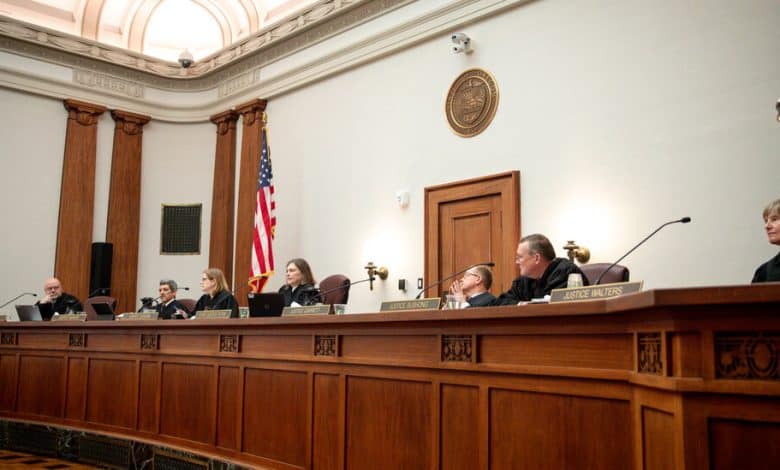Oregon Supreme Court Lets Trump Stay on Primary Ballot, for Now

Oregon’s Supreme Court said on Friday that former President Donald J. Trump could remain on the state’s 2024 primary election ballot, at least for now. The court opted to defer any decision on the merits of his eligibility until after the U.S. Supreme Court considers a similar challenge out of Colorado.
Challengers have filed lawsuits in more than 30 states claiming Mr. Trump is ineligible to serve as president under the 14th Amendment, which disqualifies government officials who engage in insurrection after taking an oath to support the Constitution. Mr. Trump’s campaign has claimed that the provision does not apply to him, and has called the lawsuits partisan and antidemocratic.
The lawsuits vary widely in legal strategy and sophistication. Several have been dismissed, others are still pending and the most prolific challenger, John Anthony Castro, a long-shot Republican presidential candidate, was indicted recently on federal tax charges.
The litigation had played out largely outside the national spotlight until last month, when the Colorado Supreme Court and Maine’s secretary of state, a Democrat, both found Mr. Trump ineligible. The former president, who is leading the polls in the Republican primary, has appealed both decisions, and the U.S. Supreme Court is set to hear oral arguments in the appeal of the Colorado case on Feb. 8.
In a brief order published on Friday, the Oregon Supreme Court’s chief justice, Meagan Flynn, said that the U.S. Supreme Court “may resolve one or more contentions” made by the challengers in Oregon. But if the U.S. Supreme Court leaves some of those questions unresolved, the challengers could file a new lawsuit in Oregon, Chief Justice Flynn wrote. Presidential primary ballots in Oregon must be finalized by March 21.
The Oregon lawsuit was led by Free Speech for People, a national advocacy group that filed on behalf of five voters in the state. The group, which called the Oregon decision “disappointing,” also filed lawsuits in Michigan and Minnesota, where the state supreme courts each declined to remove Mr. Trump from the primary ballot. The group still has challenges pending in Illinois and Massachusetts.
Mr. Trump’s lawyers argued that he did not engage in insurrection and that Oregon law did not authorize officials to exclude primary candidates based on concerns about their eligibility. Oregon’s secretary of state, LaVonne Griffin-Valade, a Democrat, declined to remove Mr. Trump from the primary ballot, arguing that she did not have the legal authority to do so.
As legal challenges mount, election officials and judges across the country have found themselves in uncharted waters that pose fundamental questions for American democracy. Many officials, including the Oregon justices, are now looking to the U.S. Supreme Court for guidance.
Nicholas Bogel-Burroughs contributed reporting.